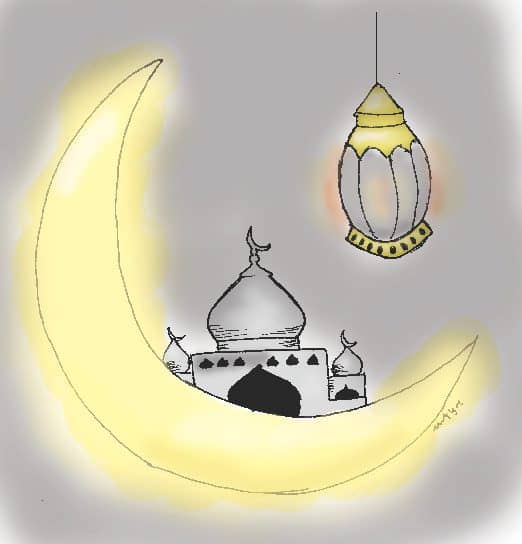Last week, on Wednesday the 16th, Ramadan commenced within Muslim communities. It marked the beginning of the ninth month of the Muslim year, during which fasting is observed from sunrise to sunset. Ramadan holds a lot of importance in Islam, because during this month, it is believed that the gates of heaven are open, and the gates to hell are closed. Fasting is also one of the five pillars of Islam, and the Qur’an was first revealed during this month. For about 30 days each year, Ramadan is celebrated by about 22 percent of the world’s population, or 1.6 billion people, and all able Muslims join in the holy observance around the world. Sophomore Binta Sanyang says that Ramadan, “is a time to cleanse yourself and be one with God.” Many people from the non-muslim community may think that fasting is what Ramadan is all about, but It is much more. Sanyang explains that, “the whole point of Ramadan isn’t to just fast,” and she expresses that is more about strengthening willpower and faith.
Sophomore Fatimah Mohammed is also celebrating Ramadan, and she declares that it is her favorite time of the year. When Mohammed was in fifth grade, she couldn’t wait anymore, and she began celebrating Ramadan with her family and friends despite the fact that she was still too young. “I wanted to do it anyway because I just love the vibes of it,” Mohammed says. She expresses that, although the celebration isn’t as enjoyable here in the US without all the grand festivities, she and her family still partake in events and gatherings here in Seattle. On weekends, Mohammed has, “Iftar with close family and friends.” Iftar is the meal eaten by Muslims after sunset during Ramadan. Mohammed says that for her family, Iftar is a feast every day, even though there is no, “special food in particular.”
There are many people outside of the muslim community around the world that fear that fasting, then feasting when the sun goes down is not good for people’s’ health. Denmark’s immigration minister even bought into this misconception when she said that fasting during Ramadan was “dangerous” a few days after Ramadan began this year. Fasting is actually a healthy way for your body to detox and revitalize itself while following a healthy eating plan during Ramadan. During the first couple days of fasting, the body starts the cleansing process, and people partaking may be susceptible to headaches. During the second stage, the body adjusts to the diet, and the digestive system is able to rest, and focus its energy on cleansing the body. By the third stage, energy has increased, leaving the body feeling great and the brain aware.
Fasting during Ramadan lets people in the muslim community put their focus onto more important things like Zakat. Mohammed explains that Zakat is when, “pretty much every family that lives a comfortable life takes care of another family that is low income.” This can include things like bringing them food, new clothes, money, and anything else they may need.
Near the end of the 30 days of Ramadan is when even more celebrations take place. Sanyang says that, “after Ramadan, we have this big celebration called Eid, and it is when we all get together and cook a giant meal and just hand out and pray.” Sanyang explains how the end of Ramadan is marked by both the festivals of Eid al-Fitr and Eid al-Adha, which are occasions for showing gratitude to Allah and remembering him, as well as giving alms to the poor. They are festivals to celebrate Islam, Allah, and all of the love, charity, and goodness of Ramadan, and a perfect way to end this sacred month.
Graphic By: Maya Williams
